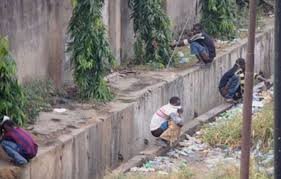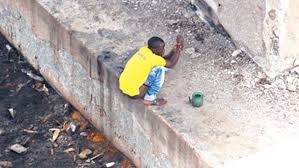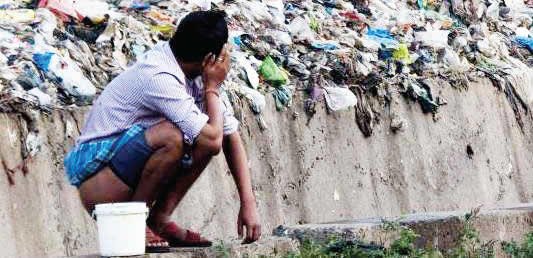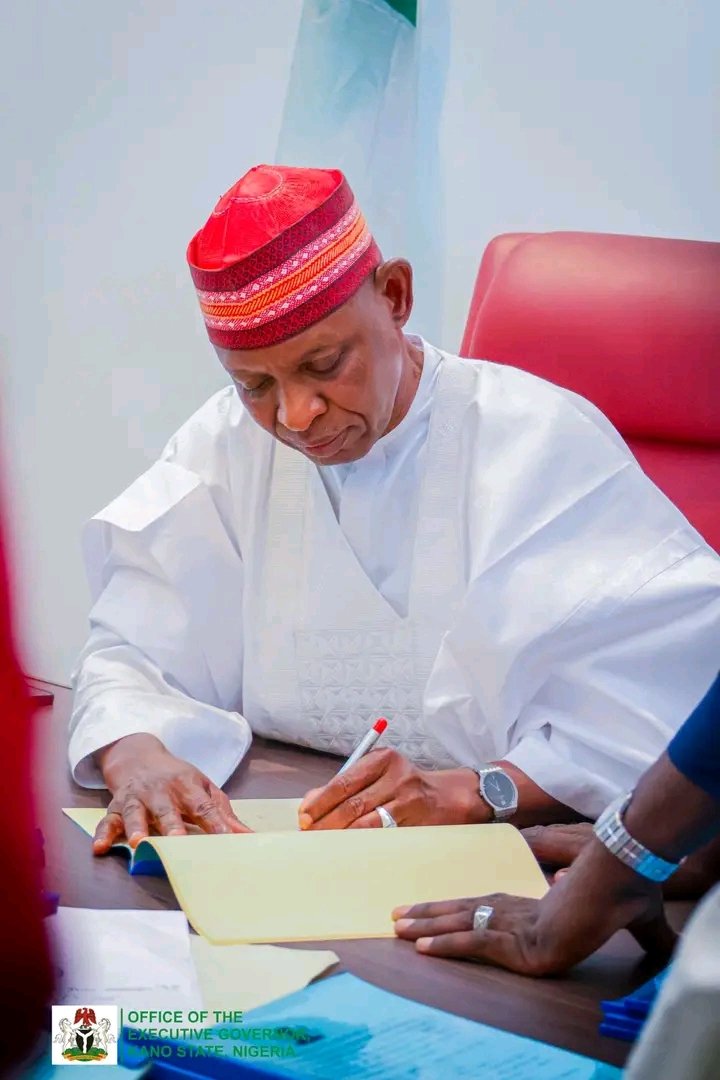“The six area councils—Abuja Municipal, Gwagwalada, Kuje, Bwari, Abaji, and Kwali—have yet to achieve open defecation-free (ODF) status, despite national targets and ongoing campaigns”.
In Nigeria’s Federal Capital Territory (FCT), the capital city of Abuja stands as a symbol of the nation’s aspirations for modernity and progress. Yet, beneath this veneer of development lies a persistent public health crisis: open defecation. Despite national and local efforts to eradicate this practice, it remains a significant challenge in both rural and urban areas of the FCT, threatening public health, environmental sustainability, and human dignity. This report by Sultan Rabiu delves into the scope of open defecation in the FCT.

The Scale of the Problem
Open defecation, defined as the practice of defecating in open spaces such as fields, bushes, or streets rather than in proper sanitation facilities, is a widespread issue in Nigeria. According to the 2018 WASH National Outcome Routine Mapping (WASHNORM) survey, approximately 47 million Nigerians roughly one in four practice open defecation, with 16 million residing in the North Central region, including the FCT. In the FCT specifically, the situation is alarming. A former FCT Minister of State, Dr. Ramatu Tijjani Aliyu, revealed in 2022 that one in every three residents approximately 37% of the population engages in open defecation.
This practice is not confined to rural communities. Areas such as Shere (Bwari), Rije (Kuje), Leleyi Gwari (Kwali), Kaida (Gwagwalada), and even urban centers like Jabi Motor Park under the Abuja Municipal Area Council (AMAC) are hotspots for open defecation. A 2018 survey highlighted a particularly dire situation in FCT schools, with 46% of public junior secondary schools lacking toilets and 61% without water facilities, forcing students to defecate in bushes and exposing them to health risks and indignity.

Executive Director of HipCity Innovation Centre, Bassey Bassey underscored the gravity of the situation at the 2024 Abuja Urban Sanitation Conference: “It is really sad that the Federal Capital Territory, capital of Nigeria, does not have even a single area council that is open defecation free.” The six area councils—Abuja Municipal, Gwagwalada, Kuje, Bwari, Abaji, and Kwali—have yet to achieve open defecation-free (ODF) status, despite national targets and ongoing campaigns.
Health, Environmental, and Social Impacts
The consequences of open defecation are far-reaching. The World Health Organization (WHO) notes that open defecation pollutes the environment and spreads diseases such as diarrhea, cholera, typhoid, and hepatitis A. In Nigeria, these preventable diseases contribute to high child mortality rates, with over 1,400 children under five dying daily from diarrheal diseases linked to poor sanitation and hygiene. Open defecation also exacerbates malnutrition and stunting, which affects 28 million children in West and Central Africa, including Nigeria.
Beyond health, open defecation undermines human dignity and safety, particularly for women and girls. The lack of private sanitation facilities increases their vulnerability to sexual assault and harassment. Economically, open defecation costs Nigeria over $1 billion annually due to healthcare expenses and lost productivity, according to a World Bank report cited by a former Minister of Water Resources, Suleiman Adamu.
National and Local Efforts to Combat Open Defecation
Nigeria has made ending open defecation a national priority, aligning with the United Nations’ Sustainable Development Goal (SDG) 6.2, which calls for universal access to adequate sanitation by 2030. In 2016, the federal government launched the “Clean Nigeria: Use the Toilet” campaign, followed by a 2018 state of emergency declaration on water, sanitation, and hygiene (WASH) by then-President Muhammadu Buhari. The goal was to make Nigeria open defecation-free by 2025, a target that appears increasingly elusive as the deadline approaches.
In the FCT, efforts have been intensified to align with this national vision. In 2022, Dr. Ramatu Tijjani Aliyu flagged off the construction of 10,000 public toilets across the six area councils, a private sector-driven initiative aimed at improving access to sanitation facilities. Executive Director of FCT Rural Water Supply and Sanitation Agency (RUWASSA), Dr. Mohammed Ali Dan-Hassan emphasised a zero-tolerance policy for open defecation in 2024, warning of stringent penalties under FCT sanitation bylaws.
Challenges and Barriers
Despite these efforts, several challenges hinder progress. Limited infrastructure remains a significant barrier, particularly in rural and underserved urban areas. The high cost of constructing and maintaining toilets is prohibitive for many households, and public facilities are often poorly maintained or inaccessible. Behavioural change is another hurdle. Dr. Mohammed Dan-Hassan noted the need for residents to adopt a culture of using and maintaining public toilets, stating, “When the facilities are there, the people should use them properly by maintaining them.”
Socioeconomic disparities also play a role. According to UNICEF, people in the poorest quintile are nine times more likely to practice open defecation than those in the richest quintile. In the FCT, rural areas bear the brunt of this disparity, with 85% of open defecators residing outside urban centers. Additionally, cultural norms and lack of awareness contribute to the persistence of open defecation, requiring sustained education and community engagement.
Innovative Solutions and Stakeholder Collaboration
Stakeholders are exploring innovative approaches to tackle the crisis. HipCity Innovation Centre’s “Swag Toilet” initiative trains toilet business owners and promotes sanitation jobs, such as recycling human waste for biogas and other productive uses. Bassey Bassey advocates for a circular economy model, citing examples from India and China where waste is repurposed to minimize environmental impact. He also calls for private sector subsidies to make public toilets affordable for low-income communities, suggesting, “Private sector can begin to subsidize such initiatives so that money cost is not a hindrance for people not going to use toilets.”
National Coordinator of the Clean Nigeria Campaign, Chizoma Opara emphasised the importance of awareness and policy enforcement: “One of the key things is awareness, awareness, awareness. If people know, they become sensitized.” She also highlighted the need for stronger collaboration with the private sector and community-based organizations to achieve the 2030 ODF target.
The FCT Administration, under Minister Nyesom Wike, has provided sanitation tools and enacted laws to improve hygiene practices. RUWASSA is expanding public toilet facilities and upgrading household sanitation in rural areas, aligning with the Abuja Master Plan. Partnerships with organizations like UNICEF, WaterAid, and USAID have been instrumental in supporting these efforts.

The Path Forward
Ending open defecation in the FCT requires a multifaceted approach: infrastructure development, behavioural change, policy enforcement, and private sector engagement. The 2024 Abuja Urban Sanitation Conference set an ambitious goal of making all six area councils ODF by 2030, acknowledging that the 2025 national target may be unattainable. Dr. Mohammed Dan-Hassan expressed optimism, stating, “Together, a clean FCT is possible,” but emphasized collective responsibility among residents.
As Nigeria’s capital, the FCT has the opportunity to set a national example. By leveraging political will, community ownership, and innovative solutions, the FCT can move closer to an open defecation-free future, ensuring health, dignity, and prosperity for its residents. However, with only 117 of Nigeria’s 774 local government areas ODF as of 2024, the journey remains long and complex.



